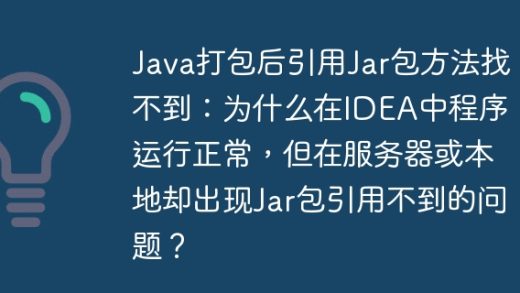当前位置: > > > > 如何获取 goroutine 的运行结果?
来源:stackoverflow
2024-04-20 22:00:37
0浏览
收藏
IT行业相对于一般传统行业,发展更新速度更快,一旦停止了学习,很快就会被行业所淘汰。所以我们需要踏踏实实的不断学习,精进自己的技术,尤其是初学者。今天给大家整理了《如何获取 goroutine 的运行结果?》,聊聊,我们一起来看看吧!
问题内容
在其他语言中,我可以同时运行多个任务并在相应的变量中获取每个任务的结果。
例如在 js 中:
getapi1()
.then( res => console.debug("result 1: ", res) )
getapi2()
.then( res => console.debug("result 2: ", res) )
getapi3()
.then( res => console.debug("result 3: ", res) )
而且我确切地知道哪个函数的执行结果在哪个变量中。
python asyncio 中也是如此:
task1 = asyncio.create_task(getapi1) task2 = asyncio.create_task(getapi2) result1 = await task1 result2 = await task2
我是 go 语言的新手。所有指南都说要使用带有 goroutine 的通道。
但是我不明白,当我从频道中读取内容时,如何确定哪个消息与哪个结果匹配?
resultsChan := make(chan map)
go getApi1(resultsChan)
go getApi2(resultsChan)
go getApi3(resultsChan)
for {
result, ok := <- resultsChan
if ok == false {
break
} else {
// HERE
fmt.Println(result) // How to understand which message the result of what API request?
}
}
正确答案
如果同一个通道要将所有 getapin 函数的结果传达给 main,并且您希望以编程方式确定每个结果的来源,则只需向通道元素类型添加专用字段即可。下面,我声明了一个名为 result 的自定义结构类型,其中包含一个名为 orig 的字段,正是出于此目的。
package main
import (
"fmt"
"sync"
)
type origin int
const (
unknown origin = iota
api1
api2
api3
)
type result struct {
orig origin
data string
}
func getapi1(c chan result) {
res := result{
orig: api1,
data: "some value",
}
c <- res
}
func getapi2(c chan result) {
res := result{
orig: api2,
data: "some value",
}
c <- res
}
func getapi3(c chan result) {
res := result{
orig: api3,
data: "some value",
}
c <- res
}
func main() {
results := make(chan result, 3)
var wg sync.waitgroup
wg.add(3)
go func() {
defer wg.done()
getapi1(results)
}()
go func() {
defer wg.done()
getapi2(results)
}()
go func() {
defer wg.done()
getapi3(results)
}()
go func() {
wg.wait()
close(results)
}()
for res := range results {
fmt.printf("%#v\n", res)
}
}
()
可能的输出(结果的顺序不确定):
883473553817
无论如何,我不会关注;你的问题根本不是一个很好的反思用例。 ,
文中关于的知识介绍,希望对你的学习有所帮助!若是受益匪浅,那就动动鼠标收藏这篇《如何获取 goroutine 的运行结果?》文章吧,也可关注公众号了解相关技术文章。


